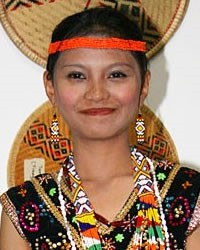Murut, Keningau in Malaysia

Photo Source:
MySabah.com
Used with permission
|
Send Joshua Project a map of this people group.
|
| People Name: | Murut, Keningau |
| Country: | Malaysia |
| 10/40 Window: | Yes |
| Population: | 11,000 |
| World Population: | 11,000 |
| Primary Language: | Murut, Keningau |
| Primary Religion: | Christianity |
| Christian Adherents: | 66.00 % |
| Evangelicals: | 6.00 % |
| Scripture: | New Testament |
| Ministry Resources: | No |
| Jesus Film: | No |
| Audio Recordings: | No |
| People Cluster: | Borneo-Kalimantan |
| Affinity Bloc: | Malay Peoples |
| Progress Level: |
|
Introduction / History
The Murut comprise several people groups that are scattered in parts of Borneo Island including Brunei, Kalimantan (Indonesia), and the East Malaysian states of Sabah and Sarawak. Their largest numbers are in Sabah but some also inhabit the rural Temburong District in Brunei. They were among the last tribal groups on Borneo to renounce headhunting. The largest Murut people groups are Tagal, Tidung, Timugon, Sembakung, Paluan, Bookan, Kalabakan, and Serundung Murut.
The literal meaning for Murut is “hill people.” Each Murut people group has its own dialect, but most are also conversant in Malay, which is the national language in Brunei and Malaysia. The Keningau Muruts speak their own dialect.
The Murut were formerly shifting cultivators moving their settlements every few years. They used the rivers as their highways. They planted hill rice and tapioca and hunted and fished for a living. The men were skilled hunters, using blowpipes, spears, and hunting dogs.
What Are Their Lives Like?
Muruts used to live in communal longhouses, usually near rivers. Today, they have abandoned this style of living for individual family houses. These modern-style Murut villages are still situated in the areas where their former longhouse communities once stood. They are a very hospitable people.
Today, cultivating hill rice is their main occupation. Saw milling, timber processing, and military careers are other means of livelihood.
Generally speaking, the Murut in Brunei have participated in the economic prosperity and modernization of Brunei Darussalam over the past few decades. The Murut in Sabah have also had increased opportunities resulting from modernization, although those who live in remote locations have not benefited as much from these changes.
What Are Their Beliefs?
Many of the Murut peoples in both Sabah and Brunei characterize their entire people group as being Christian. However, this is often done to distinguish their culture from their earlier culture and from the predominant Muslim culture than to characterize individual beliefs.
Many of those who call themselves Christian are nominal believers. Among church members, there is a mix of Roman Catholic and Protestant affiliations.
What Are Their Needs?
Opportunities for better education and economic improvement are limited in the more remote areas where Muruts live. Those choosing to pursue better opportunities are forced to move out of their local area, often losing their culture in the process.
Prayer Points
Pray that non-believers, as well as the many nominal believers, would respond to God's word when they hear it.
Pray that in the face of local restrictions, believers will persevere and will also share the good news.
Pray for complete Bibles for each Murut language.
Pray for those who love the Lord will disciple others.